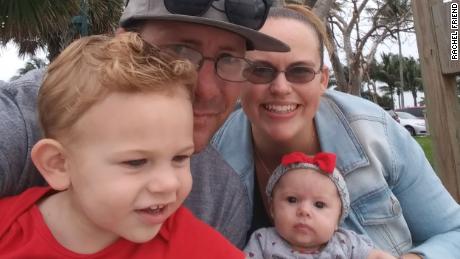Economy
Millennials are facing another once-in-a-generation economic disaster – CNN
The long shadow of the 2008 financial crisis
The fresh hit from coronavirus
Some good news
Economy
China Wants Everyone to Trade In Their Old Cars, Fridges to Help Save Its Economy
|
|


China’s world-beating electric vehicle industry, at the heart of growing trade tensions with the US and Europe, is set to receive a big boost from the government’s latest effort to accelerate growth.
That’s one takeaway from what Beijing has revealed about its plan for incentives that will encourage Chinese businesses and households to adopt cleaner technologies. It’s widely expected to be one of this year’s main stimulus programs, though question-marks remain — including how much the government will spend.





Economy
German Business Outlook Hits One-Year High as Economy Heals
|
|


German business sentiment improved to its highest level in a year — reinforcing recent signs that Europe’s largest economy is exiting two years of struggles.
An expectations gauge by the Ifo institute rose to 89.9. in April from a revised 87.7 the previous month. That exceeds the 88.9 median forecast in a Bloomberg survey. A measure of current conditions also advanced.
“Sentiment has improved at companies in Germany,” Ifo President Clemens Fuest said. “Companies were more satisfied with their current business. Their expectations also brightened. The economy is stabilizing, especially thanks to service providers.”
A stronger global economy and the prospect of looser monetary policy in the euro zone are helping drag Germany out of the malaise that set in following Russia’s attack on Ukraine. European Central Bank President Christine Lagarde said last week that the country may have “turned the corner,” while Chancellor Olaf Scholz has also expressed optimism, citing record employment and retreating inflation.
There’s been a particular shift in the data in recent weeks, with the Bundesbank now estimating that output rose in the first quarter, having only a month ago foreseen a contraction that would have ushered in a first recession since the pandemic.
Even so, the start of the year “didn’t go great,” according to Fuest.
“What we’re seeing at the moment confirms the forecasts, which are saying that growth will be weak in Germany, but at least it won’t be negative,” he told Bloomberg Television. “So this is the stabilization we expected. It’s not a complete recovery. But at least it’s a start.”
Monthly purchasing managers’ surveys for April brought more cheer this week as Germany returned to expansion for the first time since June 2023. Weak spots remain, however — notably in industry, which is still mired in a slump that’s being offset by a surge in services activity.
“We see an improving worldwide economy,” Fuest said. “But this doesn’t seem to reach German manufacturing, which is puzzling in a way.”
Germany, which was the only Group of Seven economy to shrink last year and has been weighing on the wider region, helped private-sector output in the 20-nation euro area strengthen this month, S&P Global said.
–With assistance from Joel Rinneby, Kristian Siedenburg and Francine Lacqua.
(Updates with more comments from Fuest starting in sixth paragraph.)





Economy
Parallel economy: How Russia is defying the West’s boycott
|
|


When Moscow resident Zoya, 62, was planning a trip to Italy to visit her daughter last August, she saw the perfect opportunity to buy the Apple Watch she had long dreamed of owning.
Officially, Apple does not sell its products in Russia.
The California-based tech giant was one of the first companies to announce it would exit the country in response to Russian President Vladimir Putin’s full-scale invasion of Ukraine on February 24, 2022.
But the week before her trip, Zoya made a surprise discovery while browsing Yandex.Market, one of several Russian answers to Amazon, where she regularly shops.
Not only was the Apple Watch available for sale on the website, it was cheaper than in Italy.
Zoya bought the watch without a moment’s delay.
The serial code on the watch that was delivered to her home confirmed that it was manufactured by Apple in 2022 and intended for sale in the United States.
“In the store, they explained to me that these are genuine Apple products entering Russia through parallel imports,” Zoya, who asked to be only referred to by her first name, told Al Jazeera.
“I thought it was much easier to buy online than searching for a store in an unfamiliar country.”
Nearly 1,400 companies, including many of the most internationally recognisable brands, have since February 2022 announced that they would cease or dial back their operations in Russia in protest of Moscow’s military aggression against Ukraine.
But two years after the invasion, many of these companies’ products are still widely sold in Russia, in many cases in violation of Western-led sanctions, a months-long investigation by Al Jazeera has found.
Aided by the Russian government’s legalisation of parallel imports, Russian businesses have established a network of alternative supply chains to import restricted goods through third countries.
The companies that make the products have been either unwilling or unable to clamp down on these unofficial distribution networks.





-



 Health21 hours ago
Health21 hours agoRemnants of bird flu virus found in pasteurized milk, FDA says
-
News18 hours ago
Amid concerns over ‘collateral damage’ Trudeau, Freeland defend capital gains tax change
-
Art22 hours ago
Random: We’re In Awe of Metaphor: ReFantazio’s Box Art
-
Art15 hours ago
The unmissable events taking place during London’s Digital Art Week
-



 Politics20 hours ago
Politics20 hours agoHow Michael Cohen and Trump went from friends to foes
-
Science21 hours ago
NASA hears from Voyager 1, the most distant spacecraft from Earth, after months of quiet
-
Tech22 hours ago
Surprise Apple Event Hints at First New iPads in Years
-
Media21 hours ago
Vaughn Palmer: B.C. premier gives social media giants another chance










